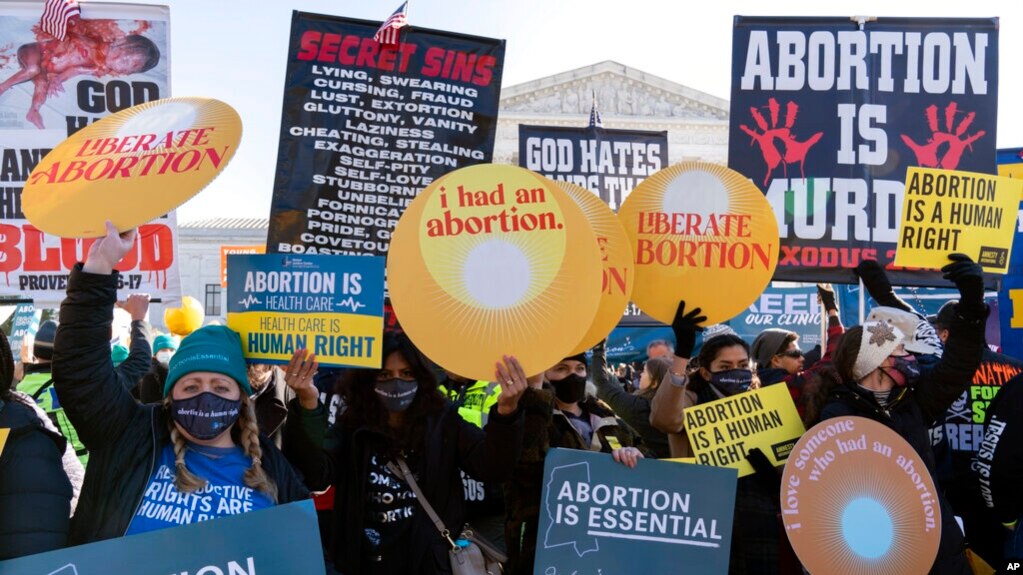Texas Abortion Law Brings Similar Measures to Limit Rights

The United States Supreme Court's decision last week to leave in place a Texas law banning most abortions gives states a chance to restrict other rights, including gun ownership.
To do that, states could pass laws copying the Texas law’s enforcement procedure. It is unclear how many states will actually do so.
The Republican-supported Texas law takes enforcement away from state officials. That way, the law avoids judicial review. Instead, the law permits private citizens to sue anyone who performs or assists a woman in getting an abortion after about six weeks of pregnancy. The law awards $10,000 to citizens for successful lawsuits.
The Texas law was designed to be difficult for courts to block because it removed state officials from enforcement. That makes it hard to know who to sue and get a ruling that would end it statewide. The Supreme Court largely accepted the enforcement structure. But the court is permitting abortion providers to continue with a legal challenge aimed at some medical licensing officials.
The Center for Reproductive Rights is a legal group in favor of abortion rights. It says legislators in five other Republican-led states have introduced abortion bills modeled on the Texas law, but none have yet been passed.
Critics have said that ruling would allow states to pass laws that avoid other recognized rights like gay and religious rights, as well as guns.
The day after the Supreme Court decision, California Governor Gavin Newsom, a Democrat, began to work on a bill to limit gun use. It would also permit private citizens to sue anyone who builds, distributes or sells assault weapons or self-built “ghost guns.” Citizens would also be awarded at least $10,000 in damages.
In Illinois, one Democratic legislator has proposed targeting gun dealers with a measure similar to the one California is considering.
New York Attorney General Letitia James, another Democrat, said on television Tuesday that she would support a similar effort in her state.
Stacey Radnor is a spokesperson for the gun-control group Everytown for Gun Safety. She said in a statement that California’s bill is "an interesting approach that we're going to examine further as we get more details."
The Supreme Court is not preventing laws that “infringe constitutionally protected rights. I do think this is a bit of an invitation to other states," said David Noll. He is a professor at Rutgers Law School in New Jersey.
James White is a Republican member of the Texas House of Representatives who supports the state's abortion law. He questioned in a letter to the state's attorney general whether private individuals must follow the Supreme Court's 2015 ruling legalizing gay marriage.
But White told Reuters he does not expect a state law similar to the abortion law targeting the rights of same-sex relationships.
Shannon Minter is with the National Center for Lesbian Rights. She said that any such measure would be discriminatory and illegal. But she said that she has not yet heard of any such proposal.
"I have not, and I hope I never do," Minter said.
Words in This Story
sue — v. to use a legal process by which you try to get a court of law to force a person, company, or organization that has treated you unfairly or hurt you in some way to give you something or to do something
infringe — v. to wrongly limit or restrict